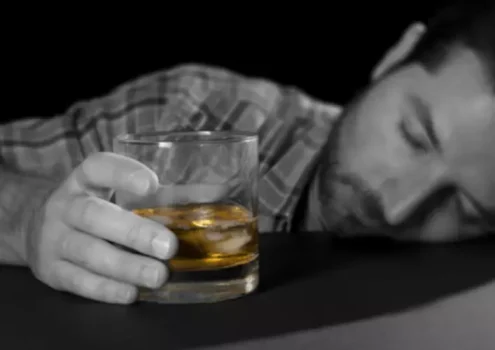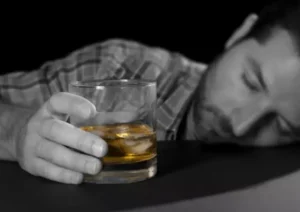
During alcohol withdrawal, patients may require higher than normal doses of GABAergic substances (benzodiazepines). For detection of alcohol overuse, questionnaire-based interviews are reported to be more sensitive than any biomarker (04). However, in cases where information on recent alcohol consumption is unavailable or considered unreliable, markers of alcohol consumption can increase accuracy of clinical diagnosis (06; 08). Carbohydrate-deficient transferrin (CDT) and gammaglutamyl transferase (GGT) are sensitive markers for alcohol overuse; systematic literature reviews have been inconclusive as to which marker is better (59; 68). No biomarker can be recommended for screening of unselected seizure populations (06; 08).

Causes of alcohol withdrawal delirium
- Alcohol seizures are a serious and potentially life-threatening condition that can occur due to excessive alcohol consumption or during withdrawal.
- Not all seizures related to alcohol use are due to withdrawal; binge drinking or chronic alcohol consumption can also provoke seizures through metabolic disturbances, such as significantly low blood sugar levels.
- The patient was seen to have a tonic-clonic seizure lasting 3 minutes with lateral tongue trauma after which he was confused and sleepy.
The authors report that over 90% of alcohol withdrawal seizures occur within 48 hours after the last drink. MAT uses medications to help manage withdrawal symptoms and reduce cravings, although no specific FDA-approved medications exist for Phencyclidine (PCP) addiction. However, Medication-assisted Treatment benefits in addiction treatment alleviate symptoms during recovery, such as antipsychotics for severe alcohol withdrawal seizure agitation or mood stabilizers to manage emotional irregularities. Medical professionals often recommend that people with epilepsy avoid or consume a moderate amount of alcohol. If you do drink, avoid binge drinking or chronically high consumption, which may help reduce your seizure severity or frequency.

Contact Discover Recovery for Help with Alcohol Addiction Treatment
- The leaflet that comes with your medications can advise you on whether it’s safe to mix your medication with alcohol.
- Alcohol consumption or withdrawal may trigger seizures in those with epilepsy.
- We will also talk about why it’s important to recognize them and get prompt treatment.
At Discover Recovery, we work with a wide variety of health insurance providers so those in need can get access to the treatment they need. That means you (or your loved one) won’t have to worry about covering the cost of treatment. Instead, all of your energy and focus can be spent where it’s really needed, which is on overcoming addiction.
How to Prevent PCP Addiction?

Individuals with a history of epilepsy are at increased risk of seizures during alcohol withdrawal. Seizures may occur in around 5% of people with alcohol withdrawal syndrome. In some cases, excessive alcohol consumption may lead people to miss meals or medication, which can also make seizures more likely in people with epilepsy.

1. Questionnaires to detect alcohol use disorder

Moderate alcohol consumption is the best strategy for reducing the risk of alcohol-related brain damage. People who binge drink, drink to the point of poor judgment, or deliberately become drunk many times each month have a much higher risk of alcohol-related brain damage. As safe alcohol consumption varies from person to person, and different sources recommend various intakes, it is important to take an individualized approach. People should talk to a healthcare professional about their drinking history and personal risk factors to get tailored advice on safe alcohol consumption.

Leave a Reply